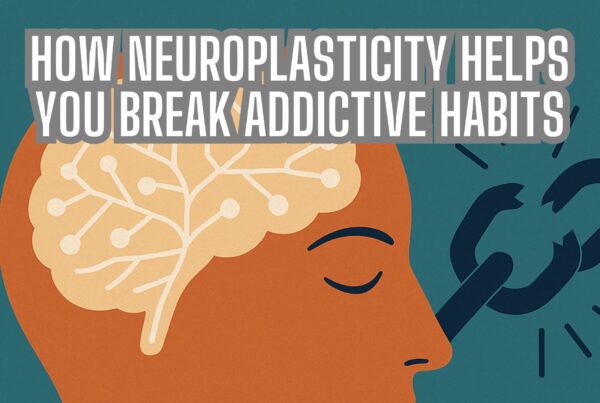Music and Dopamine: The Neurological Symphony
Music has long been a universal language, transcending cultural boundaries and generations. Whether it’s the rhythm of a drum, the soothing strum of a guitar, or the powerful surge of a symphony, music has the uncanny ability to stir emotions and lift spirits. But what underpins this profound emotional connection? Neuroscience offers a fascinating answer: dopamine. This neurotransmitter, essential for emotional and cognitive functions, is at the heart of why we feel so good when immersed in our favourite tunes.
Dopamine and the Reward System
Dopamine plays a pivotal role in our brain’s reward system. This neurotransmitter is not just a chemical messenger; it’s a harbinger of pleasure and motivation. When you bite into your favourite dessert or complete a challenging task, dopamine is at work, reinforcing behaviours that bring satisfaction.
Music, intriguingly, taps into this same system. A study revealed that when participants listened to music they loved, their brain released dopamine in key reward areas. This biological response explains why music can evoke such profound feelings, from elation to a comforting sense of peace.
The Unique Power of Musical Pleasure
Music-induced pleasure goes beyond mere enjoyment. It engages parts of the brain associated with anticipation and reward. Researchers have shown that even the expectation of a beloved musical phrase can trigger dopamine release. This anticipation heightens emotional experiences, explaining why a climactic moment in a song can send chills down your spine.
Moreover, this dopamine-driven pleasure is distinct from other forms of gratification. Unlike tangible rewards such as food or money, music provides an abstract yet deeply personal reward. The subjective nature of musical enjoyment makes it a unique and versatile form of pleasure.
The Science Behind Emotional Resonance
How does music manage to convey such a spectrum of emotions? The answer lies in its ability to activate various brain regions. The auditory cortex processes sound, while the limbic system handles emotional reactions. Together, they create a rich tapestry of feelings. Dopamine acts as a bridge between these regions, enhancing the emotional depth of musical experiences.
For instance, a poignant melody can evoke a sense of longing, while an upbeat tempo might energise and uplift. This emotional resonance reflects the brain’s intricate response to rhythm, harmony, and melody.
Music as a Motivational Tool
Beyond pleasure, music serves as a powerful motivator. Athletes often rely on high-energy tracks to boost performance, while students may use soothing melodies to enhance focus during study sessions. The link between music and motivation is underpinned by dopamine, which reinforces behaviours that align with our goals.
In practical terms, this means that music can help you push through a tough workout or remain engaged in a monotonous task. The right playlist can be the difference between giving up and pushing forward.
The Social Bonding Aspect of Music
Music also plays a crucial role in social bonding. From communal singing in ancient rituals to modern concerts, music has always been a shared experience. This collective engagement amplifies its emotional impact, fostering a sense of connection and unity.
Dopamine release is a key player here as well. When people engage in group musical activities, their brains release dopamine synchronously, creating a shared sense of joy and belonging.
Music Therapy: Harnessing Dopamine for Healing
The therapeutic potential of music is increasingly recognised in medical settings. Music therapy leverages its dopamine-boosting properties to aid in the treatment of various conditions, from depression and anxiety to Parkinson’s disease and stroke recovery.
By tapping into the brain’s reward system, music therapy provides a non-invasive way to promote healing and well-being.
The Role of Personal Preference
Not all music elicits the same response, and this variability is key to understanding its impact. Personal preference plays a significant role in how music affects our dopamine levels. A song that brings joy to one person might leave another indifferent or even annoyed.
Whether it’s classical, jazz, rock, or pop, the most effective dopamine boost comes from music that resonates personally. This personalised approach is especially valuable in therapeutic settings.
Dopamine Beyond Pleasure: Learning and Memory
Dopamine’s role in music extends beyond immediate pleasure. It also plays a part in learning and memory. When we associate a particular song with a meaningful event, dopamine helps solidify that connection in our memory.
Music acts as a powerful mnemonic device, linking sound and experience in ways that deepen our emotional and cognitive lives.
Future Directions in Music and Neuroscience
As research continues to uncover the intricate relationship between music and the brain, new possibilities emerge. Scientists are exploring how music can be integrated into broader therapeutic frameworks, from enhancing cognitive function to alleviating chronic pain.
These insights could lead to personalised music interventions, optimised to boost well-being and improve quality of life.
Music and Dopamine
The profound connection between music and dopamine highlights its unique ability to touch our lives on multiple levels. Whether it’s the joy of a catchy tune or the solace of a heartfelt ballad, music enriches our emotional and cognitive landscapes.
By understanding the science behind these experiences, we can harness the power of music not only for enjoyment but also for healing and growth.
Release Hypnosis Melbourne Hypnotherapy
Since 2015, Lawrence Akers has been working under the name Release Hypnosis offering Hypnotherapy and ACT based work to the people of Melbourne or an online service. Based on St Kilda Rd, Release Hypnosis is an easy and convenient location to get to and accessible by the ANZAC station train and tram stop. Release Hypnosis can help with a wide range of presenting issues, and I offer a free 30 minute no obligation discovery call for those who are unsure if hypnotherapy is the right way forward for them.
Book Your FREE 30 Minute Consultation With Release Hypnosis NOW!
You may also like to read:
Exploring Content-Free Hypnotherapy
The Journey to Becoming a Better Hypnotic Subject
Best Hypnotherapy Resources 2023: Release Hypnosis Top Blogs
What Is The Success Rate of Hypnosis?








